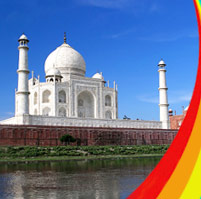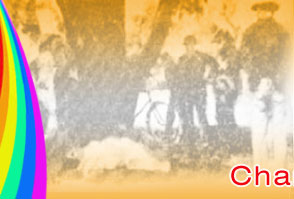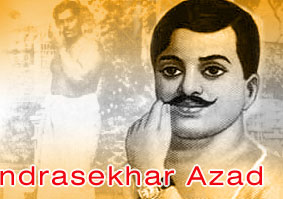The Kakori train robbery was a watershed event in the
annals of Indian revolutionary movement. The sheer audacity and courage
of this assault and its successful execution gave an impetus to the
fledgling rebellious activities being waged across the country.
Frontline leaders of the Hindustan Republican Association, an
underground rebel outfit, such as Ashfaqullah Khan, Ramprasad Bismil and
Chandrasekhar Azad were the lynchpin of the Kakori train robbery.
The mastermind behind this daredevil dacoity was Ramprasad Bismil who
first conceived the plot while traveling from Shahjahanpur to Lucknow in
Uttar Pradesh by the Number 8 Down Train. He noticed that at every
station moneybags were being taken into the guard's van and being
dropped into an iron safe and despite the valuable bounty security
arrangements were lax and virtually non-existent inside the train. At a
meeting with his fellow revolutionaries, Ramprasad laid bare his plan.
The members of the HRA approved this audacious plan and decided that
the looted money would be used to garner arms and ammunition for the
movement. August 9, 1925 was chosen as the D-day and a select group of
ten including Ashfaqullah Khan, Ramprasad Bismil and Chandrasekhar Azad
was entrusted the responsibility for execution. As the train was
approaching the Kakori town, one of the revolutionaries stopped the
train by pulling the chain and the rest overpowered the guard. After
breaking into the guard's van the rebels escaped with the loot.
Repercussions of this robbery were swift and lethal. The government
used all its resources in launching a massive manhunt and one by one all
the revolutionaries fell into the police dragnet. After a farcical
trial, Ashfaqullah Khan, Ramprasad Bismil, Roshan Singh, and Rajendra
Lahiri were hanged. But the eternal survivor that he was, Chandrashekhar
Azad managed to elude the police and continued his fight for many years
to come.









